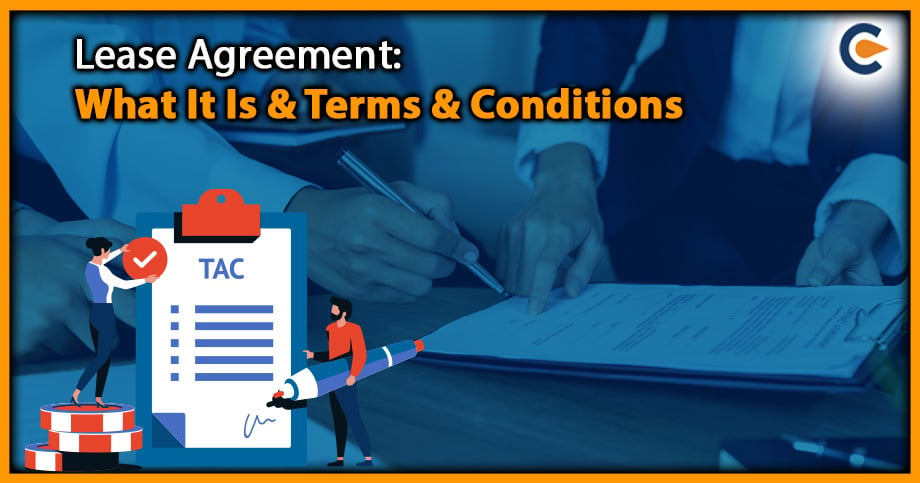In India, a lease agreement is a legal contract between a landlord and a tenant that sets out the terms and conditions of the rental arrangement. The Indian Contract Act, 1872 and various state-specific laws that govern the relationship between the landlord and tenant govern the lease agreement.
A lease agreement in India typically includes details such as the parties involved, the description of the property being leased, the term of the lease, the rent amount and payment terms, security deposit requirements, maintenance and repair obligations, use of the property, entry to the property, termination of the lease, and any other specific terms and conditions agreed upon by both parties.
Under Indian law, a lease agreement must be executed on stamp paper of appropriate value, as per the stamp duty rates applicable in the state where the property is located. The lease agreement must be signed by both the landlord and the tenant and should be executed in the presence of at least two witnesses.
It is important to note that the terms and conditions of a lease agreement cannot violate any of the provisions of the Rent Control Act or other applicable laws in the state. Any clause in the lease agreement that is found to be in violation of the law is considered void and unenforceable.
In conclusion, a lease agreement in India is a binding legal contract between a landlord and a tenant that specifies the terms and conditions of renting a property and is subject to the Indian Contract Act, 1872[1], as well as various state-specific laws.
What Are Some Common Clauses In A Lease Agreement?
Here are some common clauses that are typically found in a lease agreement:
Parties Involved:
- This clause identifies the parties involved in the lease agreement, including the name and address of the landlord and tenant.
Property Description:
- This clause includes a detailed description of the property being leased, including its address, number of bedrooms, bathrooms, and other important features.
Rent and Payment Terms:
- This clause outlines the rent amount, when it is due, and acceptable payment methods. It also specifies any penalties for late payment and whether a security deposit is required.
Utilities and Services:
- This clause specifies which utilities and services the tenant is responsible for paying, such as electricity, water, gas, internet, cable, and other amenities.
Maintenance and Repairs:
- This clause specifies who is responsible for maintaining and repairing the property, including routine maintenance tasks like changing light bulbs, as well as more substantial repairs, such as fixing a broken window or plumbing issue.
Use of the Property:
- This clause outlines the permitted use of the property, such as whether it can be used for residential or commercial purposes. It also specifies any restrictions on the tenant’s use of the property, such as not allowing pets, smoking, or subletting.
Entry to the Property:
- This clause specifies under what circumstances the landlord can enter the property, such as for repairs or inspections. It also specifies how much notice the landlord must give the tenant before entering the property.
Term of the Lease:
- This clause specifies the start and end dates of the tenancy. The lease can be for a fixed term, such as one year, or a periodic tenancy, which is renewed automatically unless either party gives notice to terminate the lease.
Termination of the Lease:
- This clause specifies the conditions under which the lease can be terminated, such as by mutual agreement, expiration of the lease term, or if either party breaches the terms of the agreement.
Governing Law:
- This clause states the governing law that will apply in case of any disputes arising from the agreement.
These are some of the common clauses that are included in a lease agreement. However, the specific terms and conditions of a lease agreement can vary depending on the particular property and the agreement between the landlord and tenant.
What Are The Terms And Conditions Of Lease Agreement?
The terms and conditions of a lease agreement can vary depending on the landlord and tenant’s specific agreement. However, here are some common terms and conditions that may be included in a lease agreement:
Rent:
- The lease agreement will specify the rent amount and when it is due, as well as any penalties for late payment.
Security Deposit:
- The lease agreement may require the tenant to pay a security deposit, which is held by the landlord to cover any damages or unpaid rent at the end of the lease term.
Term of the Lease:
- The lease agreement will specify the start and end dates of the lease term, as well as any renewal options.
Maintenance and Repairs:
- The lease agreement may specify which party is responsible for maintenance and repairs of the property.
Use of the Property:
- The lease agreement may specify how the tenant is permitted to use the property, including any restrictions on pets, smoking, or subletting.
Entry to the Property:
- The lease agreement may specify how much notice the landlord must give the tenant before entering the property for repairs or inspections.
Termination of the Lease:
- The lease agreement may specify the conditions under which the lease can be terminated, including any notice requirements.
Utilities:
- The lease agreement may specify which utilities the tenant is responsible for paying.
Alterations:
- The lease agreement may specify whether the tenant is allowed to make alterations to the property, and if so, under what conditions.
Dispute Resolution:
- The lease agreement may specify how disputes between the landlord and tenant will be resolved, including any mandatory arbitration or mediation provisions.
These are just some of the common terms and conditions that may be included in a lease agreement. It is important for both the landlord and tenant to carefully review the agreement and understand their respective rights and obligations before signing.
Conclusion:
In conclusion, a lease agreement is a legal contract between a landlord and tenant that outlines the terms and conditions of a rental property. The agreement typically includes important clauses such as the parties involved, property description, rent and payment terms, utilities and services, maintenance and repairs, use of the property, entry to the property, term of the lease, termination of the lease, and governing law. The specific terms and conditions of a lease agreement may vary depending on the agreement between the landlord and tenant. It is important for both parties to carefully review the agreement and understand their respective rights and obligations before signing to avoid any misunderstandings or disputes in the future.
Read Our Article: Commercial Lease Agreements











